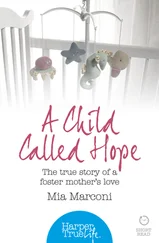Ганс Андерсен - The True Story of My Life - A Sketch
Здесь есть возможность читать онлайн «Ганс Андерсен - The True Story of My Life - A Sketch» — ознакомительный отрывок электронной книги совершенно бесплатно, а после прочтения отрывка купить полную версию. В некоторых случаях можно слушать аудио, скачать через торрент в формате fb2 и присутствует краткое содержание. Жанр: Биографии и Мемуары, literature_19, Европейская старинная литература, foreign_antique, на английском языке. Описание произведения, (предисловие) а так же отзывы посетителей доступны на портале библиотеки ЛибКат.
- Название:The True Story of My Life: A Sketch
- Автор:
- Жанр:
- Год:неизвестен
- ISBN:нет данных
- Рейтинг книги:3 / 5. Голосов: 1
-
Избранное:Добавить в избранное
- Отзывы:
-
Ваша оценка:
- 60
- 1
- 2
- 3
- 4
- 5
The True Story of My Life: A Sketch: краткое содержание, описание и аннотация
Предлагаем к чтению аннотацию, описание, краткое содержание или предисловие (зависит от того, что написал сам автор книги «The True Story of My Life: A Sketch»). Если вы не нашли необходимую информацию о книге — напишите в комментариях, мы постараемся отыскать её.
The True Story of My Life: A Sketch — читать онлайн ознакомительный отрывок
Ниже представлен текст книги, разбитый по страницам. Система сохранения места последней прочитанной страницы, позволяет с удобством читать онлайн бесплатно книгу «The True Story of My Life: A Sketch», без необходимости каждый раз заново искать на чём Вы остановились. Поставьте закладку, и сможете в любой момент перейти на страницу, на которой закончили чтение.
Интервал:
Закладка:
H. C. Andersen
The True Story of My Life: A Sketch
THE TRUE STORY OF MY LIFE:
To MESSRS. MUNROE AND CO.
Gentlemen,—I take this opportunity of forwarding to you, the proof sheets of the unpublished Life of Hans Christian Andersen—translated from a copy transmitted to me for that purpose, by the Author. It is as well to state that this is the Author's Edition, he being participant in the proceeds of this work.
I remain, gentlemen, Yours truly, MARY HOWITT. LONDON, June 29, 1847.PREFACE
No literary labor is more delightful to me than translating the beautiful thoughts and fancies of Hans Christian Andersen. My heart is in the work, and I feel as if my spirit were kindred to his; just as our Saxon English seems to me eminently fitted to give the simple, pure, and noble sentiments of the Danish mind.
This True Story of his Life will not be found the least interesting of his writings; indeed, to me it seems one of the most so. It furnishes the key, as it were, to all the rest; and the treasures which it unlocks will be found to be possessed of additional value when viewed through the medium of this introduction. It is gratifying for me to be able to state that the original Author has a personal interest in this English version of his "Life," as I have arranged with my publishers to pay Mr. Andersen a certain sum on the publication of this translation, and the same on all future editions.
M. H.The Elms, Clapton, June 26.
THE TRUE STORY OF MY LIFE
CHAPTER I
My life is a lovely story, happy and full of incident. If, when I was a boy, and went forth into the world poor and friendless, a good fairy had met me and said, "Choose now thy own course through life, and the object for which thou wilt strive, and then, according to the development of thy mind, and as reason requires, I will guide and defend thee to its attainment," my fate could not, even then, have been directed more happily, more prudently, or better. The history of my life will say to the world what it says to me—There is a loving God, who directs all things for the best.
My native land, Denmark, is a poetical land, full of popular traditions, old songs, and an eventful history, which has become bound up with that of Sweden and Norway. The Danish islands are possessed of beautiful beech woods, and corn and clover fields: they resemble gardens on a great scale. Upon one of these green islands, Funen, stands Odense, the place of my birth. Odense is called after the pagan god Odin, who, as tradition states, lived here: this place is the capital of the province, and lies twenty-two Danish miles from Copenhagen.
In the year 1805 there lived here, in a small mean room, a young married couple, who were extremely attached to each other; he was a shoemaker, scarcely twenty-two years old, a man of a richly gifted and truly poetical mind. His wife, a few years older than himself, was ignorant of life and of the world, but possessed a heart full of love. The young man had himself made his shoemaking bench, and the bedstead with which he began housekeeping; this bedstead he had made out of the wooden frame which had borne only a short time before the coffin of the deceased Count Trampe, as he lay in state, and the remnants of the black cloth on the wood work kept the fact still in remembrance.
Instead of a noble corpse, surrounded by crape and wax-lights, here lay, on the second of April, 1805, a living and weeping child,—that was myself, Hans Christian Andersen. During the first day of my existence my father is said to have sate by the bed and read aloud in Holberg, but I cried all the time. "Wilt thou go to sleep, or listen quietly?" it is reported that my father asked in joke; but I still cried on; and even in the church, when I was taken to be baptized, I cried so loudly that the preacher, who was a passionate man, said, "The young one screams like a cat!" which words my mother never forgot. A poor emigrant, Gomar, who stood as godfather, consoled her in the mean time by saying that the louder I cried as a child, all the more beautifully should I sing when I grew older.
Our little room, which was almost filled with the shoemaker's bench, the bed, and my crib, was the abode of my childhood; the walls, however, were covered with pictures, and over the work-bench was a cupboard containing books and songs; the little kitchen was full of shining plates and metal pans, and by means of a ladder it was possible to go out on the roof, where, in the gutters between and the neighbor's house, there stood a great chest filled with soil, my mother's sole garden, and where she grew her vegetables. In my story of the Snow Queen that garden still blooms.
I was the only child, and was extremely spoiled, but I continually heard from my mother how very much happier I was than she had been, and that I was brought up like a nobleman's child. She, as a child, had been driven out by her parents to beg, and once when she was not able to do it, she had sate for a whole day under a bridge and wept. I have drawn her character in two different aspects, in old Dominica, in the Improvisatore, and in the mother of Christian, in Only a Fiddler.
My father gratified me in all my wishes. I possessed his whole heart; he lived for me. On Sundays, he made me perspective glasses, theatres, and pictures which could be changed; he read to me from Holberg's plays and the Arabian Tales; it was only in such moments as these that I can remember to have seen him really cheerful, for he never felt himself happy in his life and as a handicrafts-man. His parents had been country people in good circumstances, but upon whom many misfortunes had fallen; the cattle had died; the farm house had been burned down; and lastly, the husband had lost his reason. On this the wife had removed with him to Odense, and there put her son, whose mind was full of intelligence, apprentice to a shoemaker; it could not be otherwise, although it was his ardent wish to be able to attend the Grammar School, where he might have learned Latin. A few well-to-do citizens had at one time spoken of this, of clubbing together a sufficient sum to pay for his board and education, and thus giving him a start in life; but it never went beyond words. My poor father saw his dearest wish unfulfilled; and he never lost the remembrance of it. I recollect that once, as a child, I saw tears in his eyes, and it was when a youth from the Grammar School came to our house to be measured for a new pair of boots, and showed us his books and told us what he learned.
"That was the path upon which I ought to have gone!" said my father, kissed me passionately, and was silent the whole evening.
He very seldom associated with his equals. He went out into the woods on Sundays, when he took me with him; he did not talk much when he was out, but would sit silently, sunk in deep thought, whilst I ran about and strung strawberries on a straw, or bound garlands. Only twice in the year, and that in the month of May, when the woods were arrayed in their earliest green, did my mother go with us, and then she wore a cotton gown, which she put on only on these occasions, and when she partook of the Lord's Supper, and which, as long as I can remember, was her holiday gown. She always took home with her from the wood a great many fresh beech boughs, which were then planted behind the polished stone. Later in the year sprigs of St. John's wort were stuck into the chinks of the beams, and we considered their growth as omens whether our lives would be long or short. Green branches and pictures ornamented our little room, which my mother always kept neat and clean; she took great pride in always having the bed-linen and the curtains very white.
Читать дальшеИнтервал:
Закладка:
Похожие книги на «The True Story of My Life: A Sketch»
Представляем Вашему вниманию похожие книги на «The True Story of My Life: A Sketch» списком для выбора. Мы отобрали схожую по названию и смыслу литературу в надежде предоставить читателям больше вариантов отыскать новые, интересные, ещё непрочитанные произведения.
Обсуждение, отзывы о книге «The True Story of My Life: A Sketch» и просто собственные мнения читателей. Оставьте ваши комментарии, напишите, что Вы думаете о произведении, его смысле или главных героях. Укажите что конкретно понравилось, а что нет, и почему Вы так считаете.












